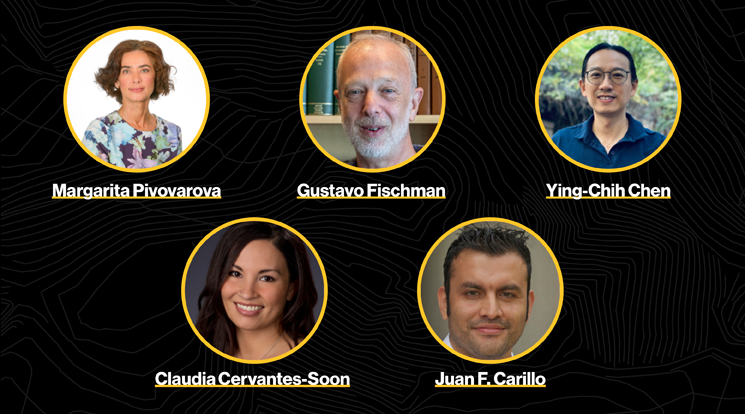Faculty Publication Roundup December, 2024

The research papers and publications listed below are a sampling of recent contributions by faculty representing Arizona State University’s Mary Lou Fulton Teachers College. Please see links below for full authorship credits.
“Teachers' beliefs about good teaching”
Journal of Education, Innovation and Communication
Margarita Pivovarova, associate professor and associate director of doctoral programs; Gustavo Fischman, professor and scholarly publications director; Roya Fathalizadeh, graduate research assistant
The research team, which included Eric Haas of California State University, conducted exploratory factor and variance analysis of data from an online survey of public school teachers to ascertain their beliefs about the pedagogical approaches of very good teachers. Teachers surveyed distinguished between relationship-emphasized and content-emphasized pedagogical approaches. They believed that a very good teacher — “a teacher from whom you learned a lot” — was more likely to practice relationship-emphasized pedagogy, embracing predominantly caring and supportive approaches combined with strong subject matter knowledge. The teachers in the sample valued a relationship-emphasized approach over content-emphasized regardless of their political orientation or other demographic characteristics. The study also found that teachers’ political beliefs did not significantly influence their pedagogy — teachers with more conservative political beliefs valued a relationship-emphasized approach over content-emphasized as did teachers with more progressive political beliefs.
“Using Student Uncertainty as a Pedagogical Resource (SUPeR) Approach to Support Students’ Productive Struggle in the Biology Classroom”
The American Biology Teacher
Ying-Chih Chen, associate professor; Jongchan Park, graduate research assistant
Productive struggle is a process in which students grapple with perplexing problems and make sense of a concept not immediately apparent and beyond their current level of understanding and capacity. The process encourages students to reflect on and restructure their existing knowledge toward new understandings. Chen and Park, along with Jamie Rapkiewcz, a science teacher at Stapley Junior High School in Mesa, Arizona, investigated an approach called Student Uncertainty as a Pedagogical Resource — SUPeR — as a method to encourage teachers to engage students in the practice of productive struggle. SUPeR comprises four steps: 1) Problematize a phenomenon; 2) Engage in material practice; 3) Participate in argumentative practice; 4) Engage in reflection, transformation and application. For this study, Rapkiewcz implemented SUPeR to introduce Mendel’s Law of Segregation in her eighth-grade biology classroom.
“Embracing Answerability in Dual Language Bilingual Education Research: Toward a Vision of Anticolonial Solidarity”
Bilingual Review/Revista Bilingüe
Claudia Cervantes-Soon, associate professor
In this commentary for a special edition of Bilingual Review, Cervantes-Soon notes that in the U.S., “The popularity of dual language bilingual education programs is the reflection of a complex evolution of the field involving various ideological orientations and socio-political, cultural, and economic influences.” She characterizes the concept of answerability — the topic of the special issue — as fundamental to ethical responsibility in interactions and relationships and “essential for cultivating a vision of anticolonial solidarity in DLBE.” Cervantes-Soon begins with a historical overview to illustrate how DLBE has been accountable to the wrong stakeholders, then explores how a decolonizing research framework and insights from this special issue could create a path of ethical accountability. She concludes by asserting that embracing answerability, by centering a vision of anticolonial solidarity toward historically marginalized communities, can help reclaim the radical roots of bilingual education.
“Playing Around: Basketball Personhoods as Sites of Dialogue, Education Research, and Epistemic Disobedience”
Critical Education
Juan F. Carillo, associate professor
Carillo partners with Dan Heiman of the University of Texas at El Paso and UT Austin’s Noah De Lissovoy, drawing on critical pedagogy, decoloniality and relevant research on “home” to offer critical perspectives on how these areas of inquiry work in dialectical ways to inform their research and scholarship. Largely within autoethnographic methods, they link this work to basketball (they are all players of the game) to incorporate notions of desire, politics and emancipatory visions of play as they make connections to research from a critical orientation. They conclude with the idea of torn nets as a poetic metaphor for critical research that engages the incomplete and contradictory visuals, games and courts within academia.
The summaries listed here are reprinted from paper and publisher abstracts. They are a sampling of the many published projects by MLFTC faculty.